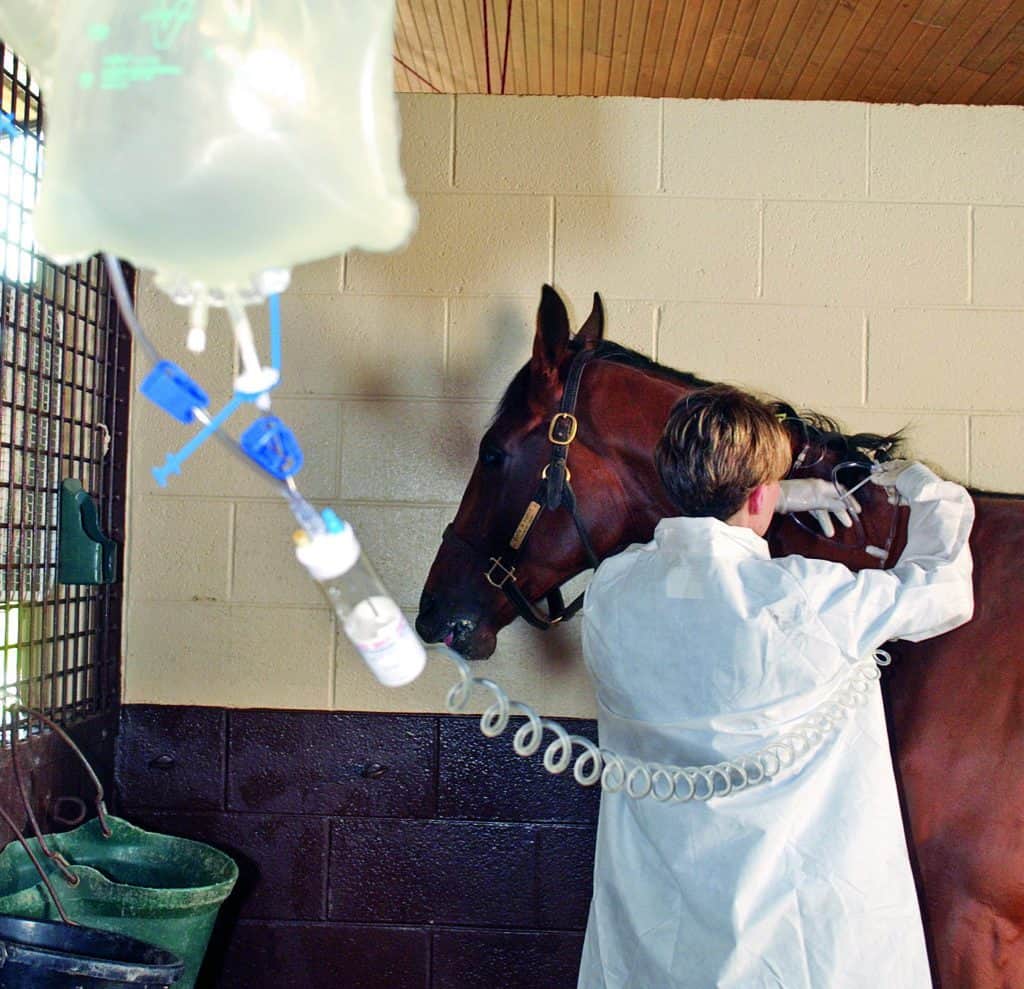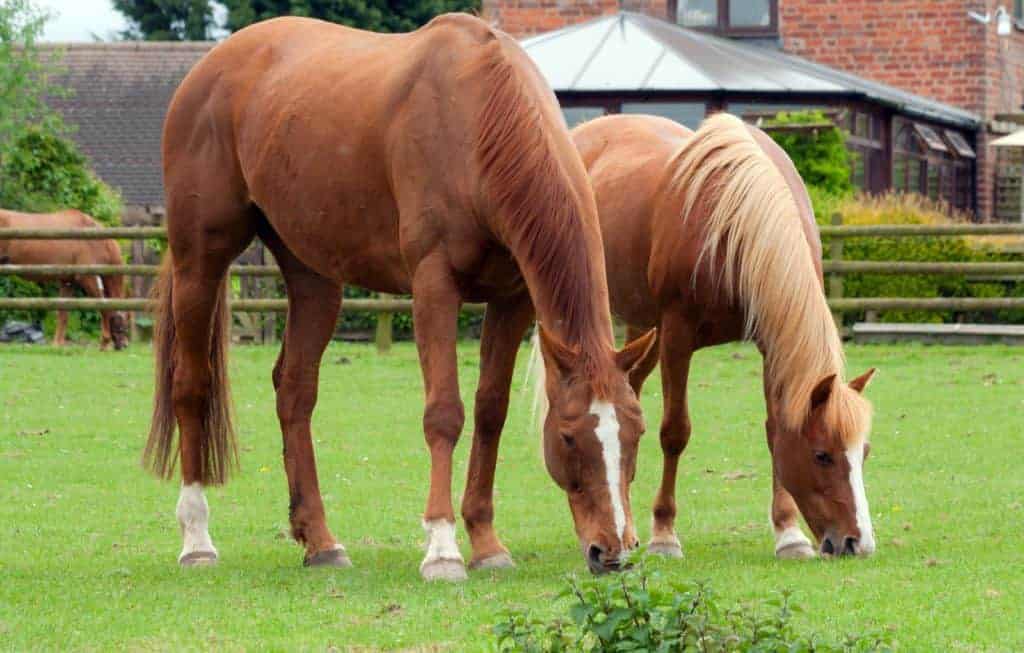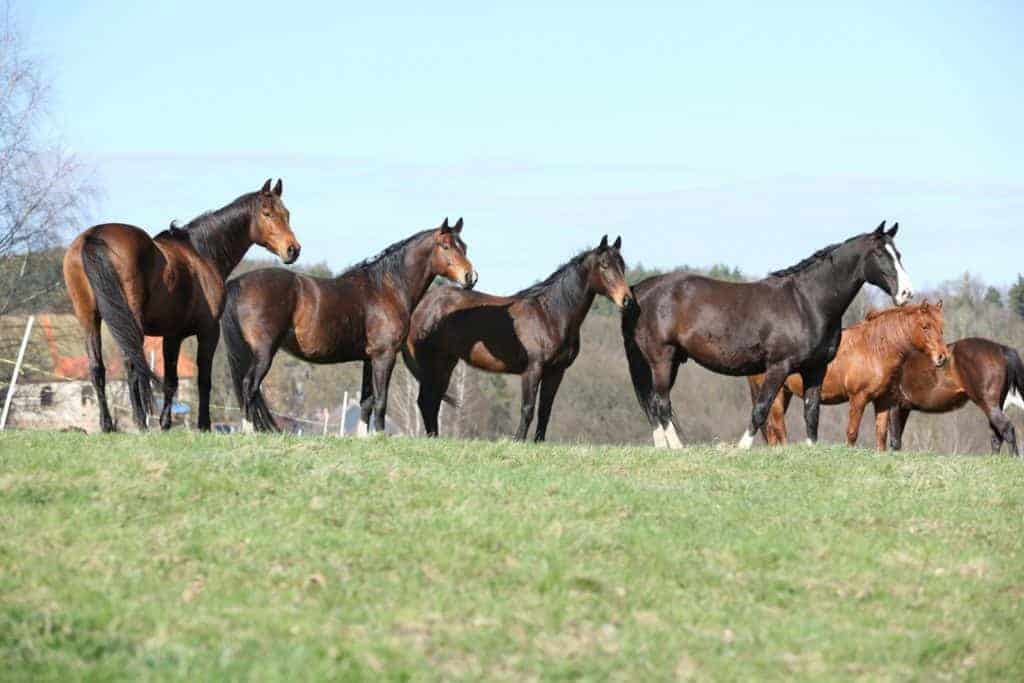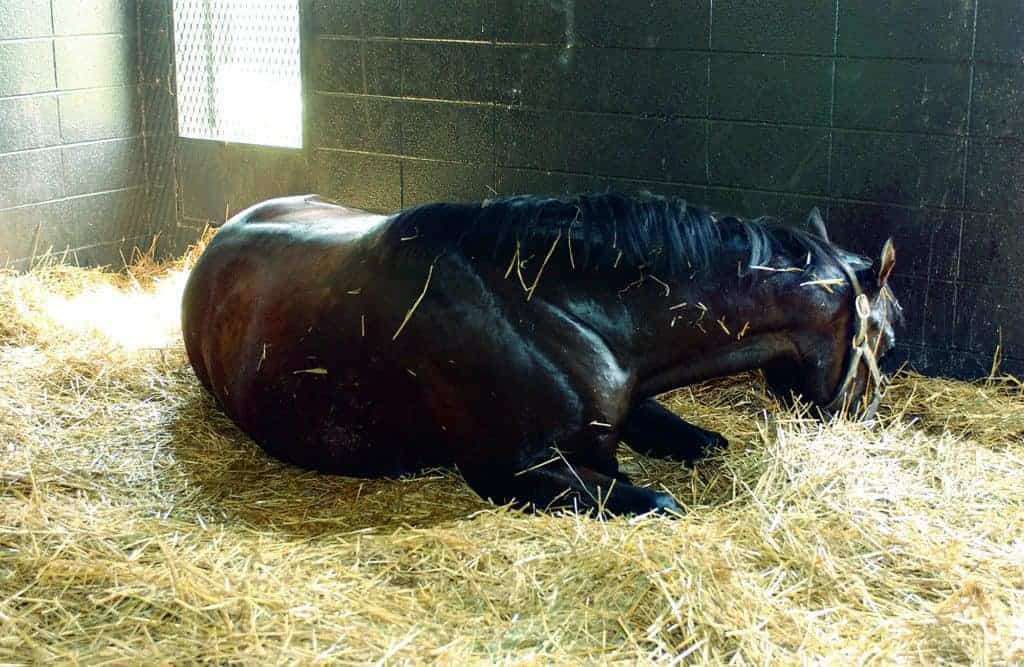
Bute vs. Firocoxib: Which NSAID Results in More Severe Gastric Ulcers?
Both NSAIDs induced GI tract inflammation, but phenylbutazone might result in more severe inflammation in the lower GI tract.

Both NSAIDs induced GI tract inflammation, but phenylbutazone might result in more severe inflammation in the lower GI tract.

One is prescribed by your veterinarian, the other is available over the counter. Find out more in our Q&A.

While any colic episode can be frightening, being prepared in advance can help you navigate such issues with your veterinarian’s assistance.

Find out why horse feed labels don’t simply list calorie content.

A Texas A&M-led study sought to describe “normal” equine microbiomes and compare those results to horses with colitis related to both antibiotic administration and Salmonella infection.

Blister beetles in alfalfa can be deadly. Here’s what to watch for and how to keep your horses healthy.

Researchers investigated whether microbiome composition could be breed-specific and, therefore, influence horse health and behavior.

Stress not only leads to stereotypical behaviors and high cortisol (stress hormone) levels but also disrupts the horse’s gastrointestinal (GI) system and microbiome.

What do we actually know? Dr. Hoyt Cheramie covers anatomy, epidemiology, pathophysiology, and management of horses with glandular gastric ulcers.

Tips include ensuring constant forage access, providing pasture turnout, and limiting concentrate intake, among others.

Equine glandular gastric disease has a distinct pathology, risk factors, diagnostics, and treatment approaches.

Are your feeding practices doing more harm than good? Experts share four ways to improve your horse’s digestive health.

Many factors affect your horse’s ability to mount an effective immune response, one of which is his age. Learn more about the horse’s immune system and how it functions at every stage of his life.

Findings from a recent study could afford a better understanding of how parasites choose their hosts within a herd and lead to the identification of biomarkers that could help pinpoint which horses are more likely to be wormy, researchers said.

Carolyn Arnold, DVM, Dipl. ACVS, of Texas A&M University offers a better understanding of the gut microbiome’s role in colic and colitis.

Equine researchers have begun studying the concept of whole-body inflammation because of its links to a variety of health problems, including “leaky gut syndrome”; musculoskeletal injury risk; and equine metabolic syndrome, insulin resistance, and laminitis.
Stay on top of the most recent Horse Health news with
"*" indicates required fields